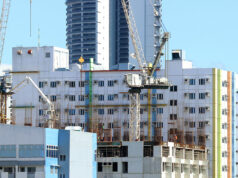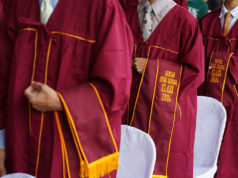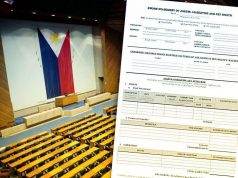REGULATED barter between southwestern Mindanao and neighboring countries is expected to get rolling by next year with the state government of Sabah in Malaysia ready to open its borders to the trade by January, according to an official of the Mindanao Development Authority (MinDA).
Assistant Secretary Romeo M. Montenegro, MinDA deputy executive director, said Sabah’s chief minister recently announced that the Malaysian state is ready to resume commercial activity with minimal restrictions on commodities.
“If there are some restrictions on certain items, by next year we are looking at a better flow of commodities via barter trade with that announcement,” Mr. Montenegro told the media.
Barter has long been practiced between Mindanao’s Zamboanga-Basilan-Sulu-Tawi-Tawi (ZAMBASULTA) area and the neighboring territories of Malaysia and Indonesia.
Mr. Montenegro said a memorandum of understanding (MoU) on Non-Convention Sized Shipping (NCSS) is also expected to be signed to regulate vessels carrying goods for barter.
“These are the wooden vessels that are being used now. At this stage, they are not regulated and registered, but when the MoU of NCSS is signed, then they will be considered a standard mode of transportation allowed by four of 10 countries of ASEAN (the Association of Southeast Asian Nations),” he said
“Congruent to that is the need for these vessels to be registered,” he added.
On the side of the Philippines, the Department of Trade and Industry, with support from MinDA, is now drafting the implementing guidelines for Executive Order (EO) No. 64-2018, signed on Oct. 29 by President Rodrigo R. Duterte.
EO 64 directs the revival and promotion of barter trade in Mindanao along with the creation of the Mindanao Barter Council.
“These are considerable allowances to the barter trade arrangement… to allow the people of Tawi-Tawi (for example) to be able to source commodities (in Sandakan, Sabah) because if they are forced to source out commodities from mainland Zamboanga, they are more expensive,” he said.
Meanwhile, in Zamboanga City, the business chamber has expressed support for the revival of barter trade.
“We are supporting the revival of the barter trading and we are one of those pushing for its revival,” Pedro Rufo N. Soliven, president of the Zamboanga Chamber of Commerce and Industry Foundation Inc. (ZCCFI) said.
He noted that barter is a unique commercial activity that benefits the ZAMBASULTA region.
“It is an ancient commercial practice in the southern Philippines which had its peak during the 70s up to the mid-80s,” Mr. Soliven said. — Maya M. Padillo and Albert F. Arcilla



